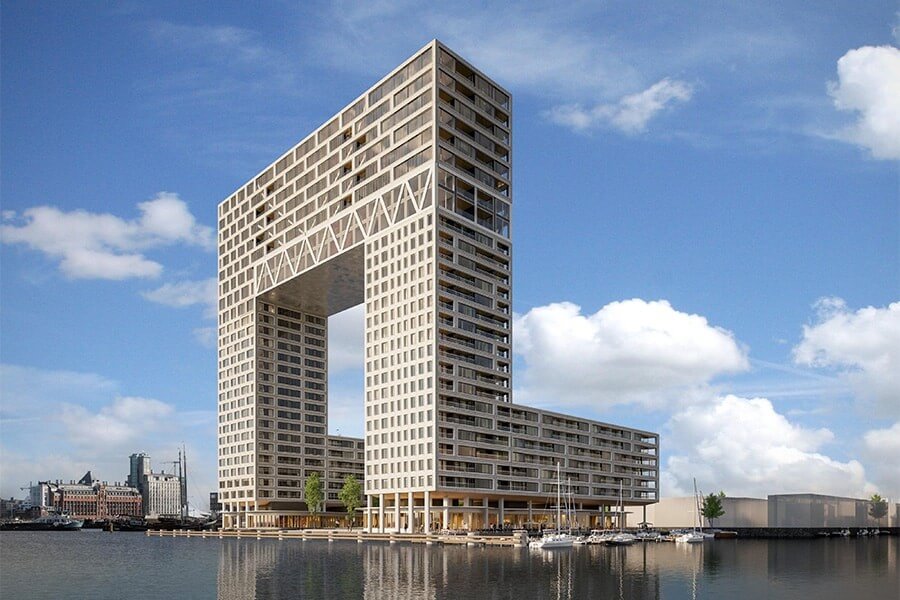Explosive rise in gas prices qualifies as unforeseen circumstance not requiring full performance of supply agreement
The connection to and transport of heat and CO2 over the designated networks is not regulated.[1] Connecting companies to the grid and supplying the ‘commodities’ is therefore a matter of negotiating and contracting. In this situation (where there is no supply within the meaning of the Heat Act) also the extent to which supply is guaranteed is determined solely by the agreement. This can create problems for customers: in the event only one producer is connected to the grid, the supply is entirely dependent on this producer. A number of horticulturist in Zeeuws-Vlaanderen were confronted with this situation when they were no longer supplied with sufficient heat and CO2 as a result of a shutdown of production by Yara Sluiskil.
On 18 October 2022, the Rotterdam court in preliminary relief proceedings ruled on the preliminary relief proceedings regarding this matter, initiated by the horticulturist against WarmCO2, Yara Sluiskil and North Sea Port Netherlands.[2] The claim for performance of the supply agreement was dismissed, given that in the court’s view the explosive rise in gas prices presented an unforeseen circumstance for WarmCO2. The court ruling shows, however, that these kinds of claims are very much intertwined with the facts of the case and may just as well turn out differently, for example in proceedings on the merits or in the event the agreement has been worded in a slightly different manner. Indeed, the court in preliminary relief proceedings is very critical of WarmCO2, Yara and NSP, so it was certainly not a done deal.
Background of dispute
Together with North Sea Port Netherlands N.V. (NSP), Yara Sluiskil (Yara) founded the company WarmCO2 (with WarmCO2 Beheer B.V. as shareholder) in 2008, for the distribution and supply of residual heat and CO2 to greenhouse horticulture. To this end, WarmCO2 has realized a residual heat and CO2 network, connecting Yara’s plant to a number of greenhouse horticulture companies in Zeeuws-Vlaanderen (the horticulturist). For the distribution and supply of heat and CO2, supply agreements have been concluded between WarmCO2 and the horticulturist.
Since the war in Ukraine, gas prices have risen explosively. As continuing production with such gas prices would lead to heavy losses, Yara has shut down a significant part of its primary business process (releasing heat and CO2). As a result of the reduced production, less heat and CO2 have been supplied to the horticulturist since August 2022.
For the connected horticulturist, this causes problems. These horticulturist are only connected to WarmCO2‘s grid and do not have an alternative, such as a connection to the gas grid. Although back-up systems have been installed, these are not suitable to structurally meet the heat demand of the horticulturist. The horticulturist therefore initiated preliminary relief proceedings to order WarmCO2, Yara and NSP to comply with the supply agreement.
Claim for performance WarmCO2
The horticulturist primarily invoked performance of the agreement. The heat supply agreement specifies the capacity of heat and CO2 to be supplied and at what price. WarmCO2 defended itself against the claim for performance by invoking force majeure and invoking the hardship clause (due to unforeseen circumstances). The court in preliminary relief proceedings provisionally ruled that force majeure does not apply (as described in the supply agreement and Section 6:75 of the Dutch Civil Code). In this respect it is, inter alia, relevant that WarmCO2 may be expected to have made binding agreements with Yara for the supply of residual heat and CO2. Furthermore, the court in preliminary relief proceedings took into account that Yara itself had a hand in the fact that it could supply less to WarmCO2, given its choice to close some plants. Now that it has also been insufficiently specified by WarmCO2 which agreements were made with Yara and whether WarmCO2 made sufficient efforts to have Yara resume supply, it cannot reasonably be objected by WarmCO2 to the horticulturist that Yara’s conduct was beyond WarmCO2‘s control.
When assessing the claim based on unforeseen circumstances (as described in the hardship clause of the supply agreement and in Section 6:258 of the Dutch Civil Code), the court in preliminary relief proceedings considers what circumstances have been factored into the supply agreement. The court in preliminary relief proceedings ruled that the parties had not taken into account supply outages or extreme price increases. The court in preliminary relief proceedings considers it plausible that the explosive growth in gas prices was therefore an unforeseen circumstance. In view of the wording of the hardship clause included in the agreement, the consequence of this finding is that unaltered continuation of the supply agreement cannot be expected from WarmCO2. WarmCO2 and the horticulturist will have to consult with each other to try to reach a reasonable solution. The claim for performance is dismissed for this reason.
Third-party effect agreement
In addition, the horticulturist also addressed a claim to Yara and NSP, which had allegedly made commitments (in the form of a declaration) regarding the continuity of supply to two of the five horticulturist. The horticulturist are of the opinion that their legal relationships are so ‘condensed’ that the other three horticulturist can also derive rights from this declaration. The court in preliminary relief proceedings did not agree. By interpreting the declaration of Yara and NSP, the court in preliminary relief proceedings rules that such commitment (about ensuring continuity of supply) only relates to the situation that WarmCO2‘s activities are completely discontinued. The duty of care following from that commitment, therefore, is not yet claimable given the state of affairs (a partial reduction of supplies).
Finally, the horticulturist are of the opinion that Yara and NSP must take care of the transport and supply of heat and CO2 to the horticulturist on the basis of third-party effect as assumed in the Supreme Court judgement Vleesmeesters/Alog.[1] It follows from this judgment that third-party effect can be assumed if the interests of a third party are so closely involved in the proper performance of the agreement that such third party may suffer damage or other disadvantage in the event a contracting party fails in that performance. In that case, the contracting party may be obliged to take the interests of those third parties into account as well. Such duty will then be based on the standard of due care. Violation of that duty can lead to liability in tort.
Interestingly, the court in preliminary relief proceedings did leave the door ajar for this third-party effect. According to the court, the special circumstances mean that Yara and NSP must, in a general sense, take the interests of the horticulturist into account when making decisions that affect the supply to the horticulturist. Precisely because (i) Yara and NSP took the initiative for the residual heat project and jointly founded WarmCO2, (ii) Yara and NSP provided financing to WarmCO2, (iii) Yara and NSP persuaded the horticulturist with statements and commitments to establish themselves in the greenhouse horticulture area and conclude supply agreements and (iv) the infrastructure is set up in such a way that Yara is the only supplier. Nevertheless, the court in preliminary relief proceedings rejected the claim for performance of the duty of care against Yara and NSP. The extra-contractual duty of care, insofar as it can be assumed, does not provide grounds to order Yara and NSP to take over WarmCO2‘s supply obligations. In proceedings on the merits, however, the extra-contractual duty of care may lead to liability for damages.
Closing remarks
In these preliminary relief proceedings, the huge increase in gas prices is considered an unforeseen circumstance, as a result of which WarmCO2 cannot be obliged to perform the supply agreement for heat and CO2. This means that the horticulturist are very likely to suffer considerable damage in the coming winter. The court in preliminary relief proceedings considered that the extra-contractual duty of care could possibly lead to liability for damages in proceedings on the merits. Partly in view of the considerations of the court in preliminary relief proceedings concerning the ‘claimability’ of Yara’s duty of care, we are very curious to see how this debate will unfold in possible proceedings on the merits. It is entirely understandable that Yara (given the high gas price) cannot continue its ammonia production just for the sake of continuity of supply to the horticulturist. On the other hand, Yara was one of the initiators of the residual heat project on which the horticulturist are now so dependent, and it would seem contrary to the principles of reasonableness and fairness to leave the horticulturist out in the cold in this way, without an alternative and without compensation for the damage. In short, enough material for a robust discussion in possible proceedings on the merits.
[1] We assume that the supply of heat by WarmCO2 to the horticulturist is not covered by the Heat Act, given that there seems to be no supply of ‘heat’ within the meaning of article 1 of the Heat Act (thermal energy for the purpose of space heating or heating of tap water). Depending on exactly how the heat is used, this may be disputed. In addition, the horticulturist possibly have a connection exceeding 100 kilowatts, as a result of which they do not qualify as a ‘user’ within the meaning of article 1 of the Heat Act. The court ruling makes no mention of this, so presumably the parties did not invoke the application of the Heat act.
[2] Rotterdam court in preliminary relief proceedings, 18 October 2022, ECLI:NL:RBROT:2022:8502.
[3] Supreme Court, 24 September 2004, ECLI:NL:HR:2004:AO9069.






